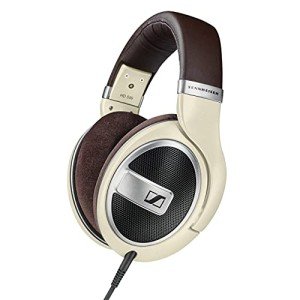The Comprehensive Guide to Audio Headphones: Types, Features, and Recommendations
In an age where audio usage has actually become a common part of day-to-day life, the importance of high-quality audio headphones can not be overstated. Whether for music, gaming, or expert usage, the right headphones can substantially enhance the listening experience.
Comprehending Headphone Types
When getting in the world of headphones, it's vital to comprehend the various types offered, each accommodating numerous user requirements and choices. Below is a comparison of a few of the most typical headphone types:
| Headphone Type | Description | Pros | Cons |
|---|---|---|---|
| Over-Ear | Large ear cups that frame the ears. | Outstanding sound quality; comfort | Large; not portable |
| On-Ear | Smaller sized ear cups that rest on the ears. | More compact than over-ear | Less sound isolation |
| In-Ear (Earbuds) | Small headphones that fit directly in the ear canal. | Extremely portable; good noise isolation | Can be uncomfortable over long durations |
| Wireless | Headphones that connect by means of Bluetooth. | Wire-free convenience | Battery life is an issue |
| Noise-Cancelling | Active noise reduction innovation | Great for blocking background sound | Typically more expensive |
Selecting the Right Type
Selecting the ideal kind of headphone mostly depends upon personal choices and intended usage. For instance, users who prioritize sound quality and convenience for long listening sessions might choose over-ear choices. On the other hand, those seeking mobility and convenience for travelling might lean towards in-ear models or wireless choices.
Vital Features of Audio Headphones
While the type of headphone is important, a number of other functions and requirements can affect the overall listening experience.
1. Sound Quality
Sound quality is arguably the most crucial feature when thinking about audio headphones. The clarity, balance, and richness of audio can differ substantially based upon develop quality, materials, and motorist size.
2. Impedance
Impedance determines the resistance that headphones provide to the audio source. Lower impedance (listed below 32 ohms) appropriates for portable devices like smart devices, while higher impedance (above 32 ohms) is usually more suitable for studio usage with amplifiers.
3. Frequency Response
The frequency response refers to the variety of sound frequencies that headphones can replicate. headphonesshop (e.g., 20Hz-20kHz) is usually preferable for music adaptability.
4. Comfort
Comfort is crucial for prolonged use. Look for functions such as cushioned ear cups and adjustable headbands to ensure a good fit.
5. Battery Life
For cordless headphones, the battery life can considerably affect usability. Numerous modern-day designs use 20 hours or more of playtime on a single charge.
6. Develop Quality
The materials utilized in building headphones can impact toughness and convenience. Search for designs with quality plastics or metals, and examine for functions like foldability for much easier storage.
Recommendations for Different Use Cases
Here are recommendations tailored for varying requirements:
For Music Lovers
Sony WH-1000XM4
- Type: Over-ear
- Features: Noise-cancellation, touch controls, 30-hour battery life.
For Gamers
HyperX Cloud II
- Type: Over-ear
- Functions: 53mm drivers, removable microphone, virtual 7.1 surround noise.
For Travel
Bose QuietComfort 35 II
- Type: Over-ear
- Features: Exceptional noise cancellation, wireless, 20-hour battery life.
For Everyday Use
Apple AirPods Pro
- Type: In-ear (wireless)
- Features: Active sound cancellation, adaptive EQ, transparency mode.
For Athletic Activities
Jabra Elite Active 75t
- Type: In-ear (cordless)
- Features: Waterproof, safe and secure fit, 24-hour battery life with charging case.
Often Asked Questions (FAQs)
1. What is the difference in between wired and cordless headphones?
Wired headphones link straight to devices utilizing a cable television, supplying undisturbed audio without the requirement for batteries, while wireless headphones connect through Bluetooth, using more flexibility of movement but requiring battery power.
2. How do I clean my headphones?
To clean your headphones, gently wipe the ear cups with a soft, wet fabric to get rid of dirt and grime. For in-ear models, you can remove silicone ideas and wash them separately.
3. Can I utilize my headphones while exercising?
Yes! However, it's best to try to find moisture-resistant models developed for exercises to stand up to sweat and motion.
4. What should I consider when buying noise-cancelling headphones?
When buying noise-cancelling headphones, consider sound quality, comfort, battery life, and whether you require extra functions like ambient sound modes.
5. Are expensive headphones worth the financial investment?
While not all expensive headphones guarantee exceptional quality, higher cost points frequently reflect much better materials, sound quality, and toughness, making them worth thinking about for major audiophiles or specialists.
Audio headphones have come a long method, offering a wide variety of alternatives to deal with varied requirements and choices. Understanding the various types, vital features, and particular suggestions can help users make notified decisions.
When purchasing headphones, think about how and where you will be utilizing them. With the correct knowledge base, one can enhance their audio listening experience considerably, making sure that every beat, discussion, or sound impact is crisp and clear. Whether for personal pleasure, expert tasks, or gaming, the best headphones can make all the distinction.

